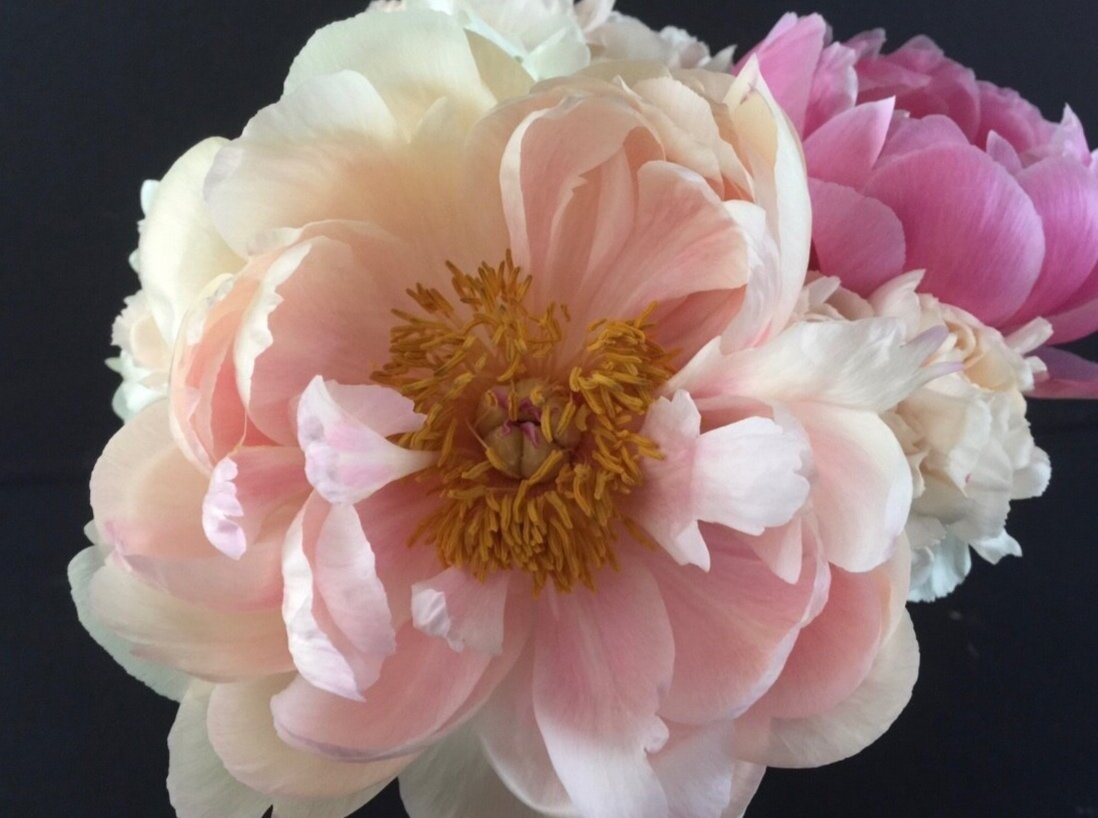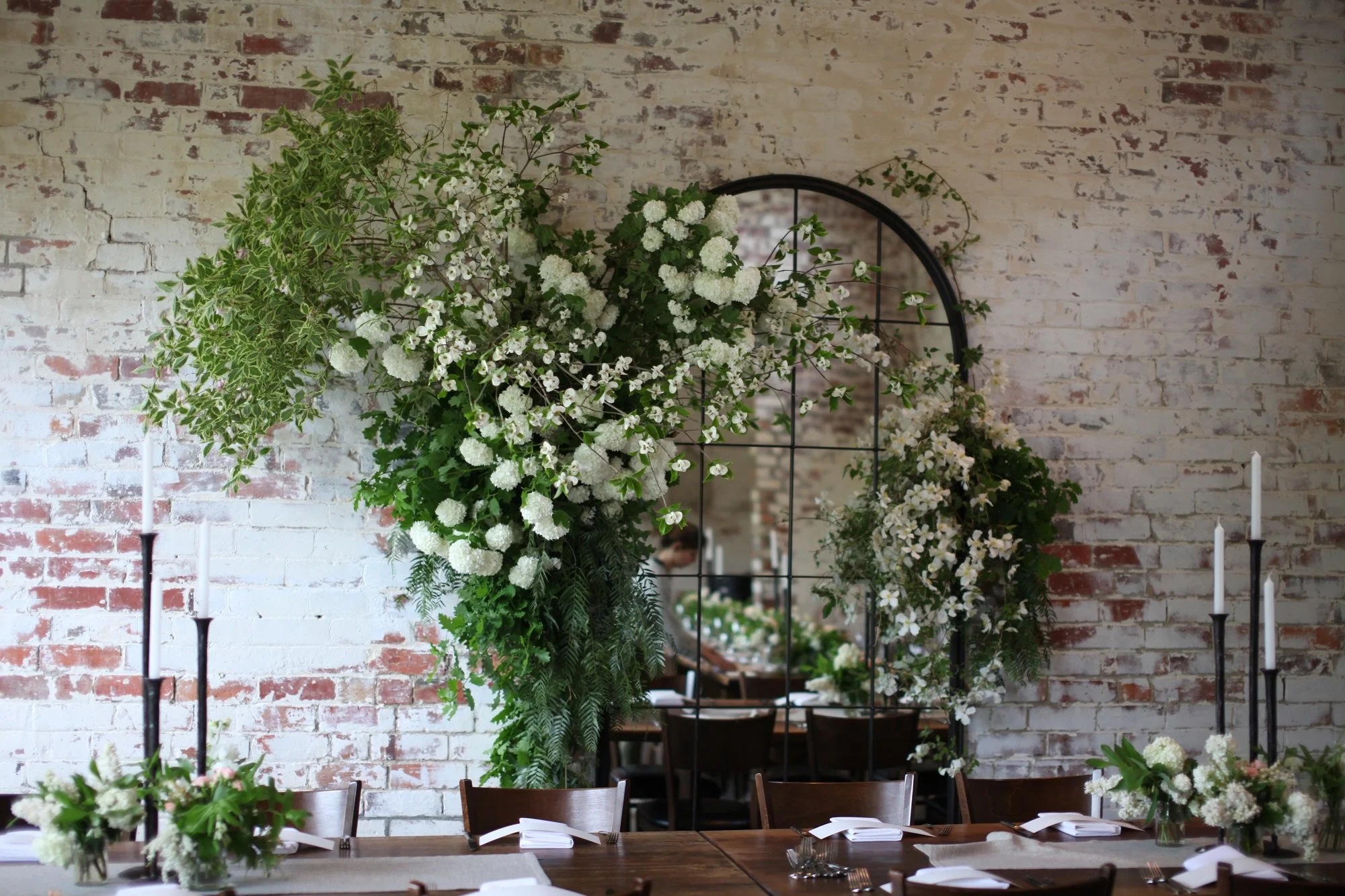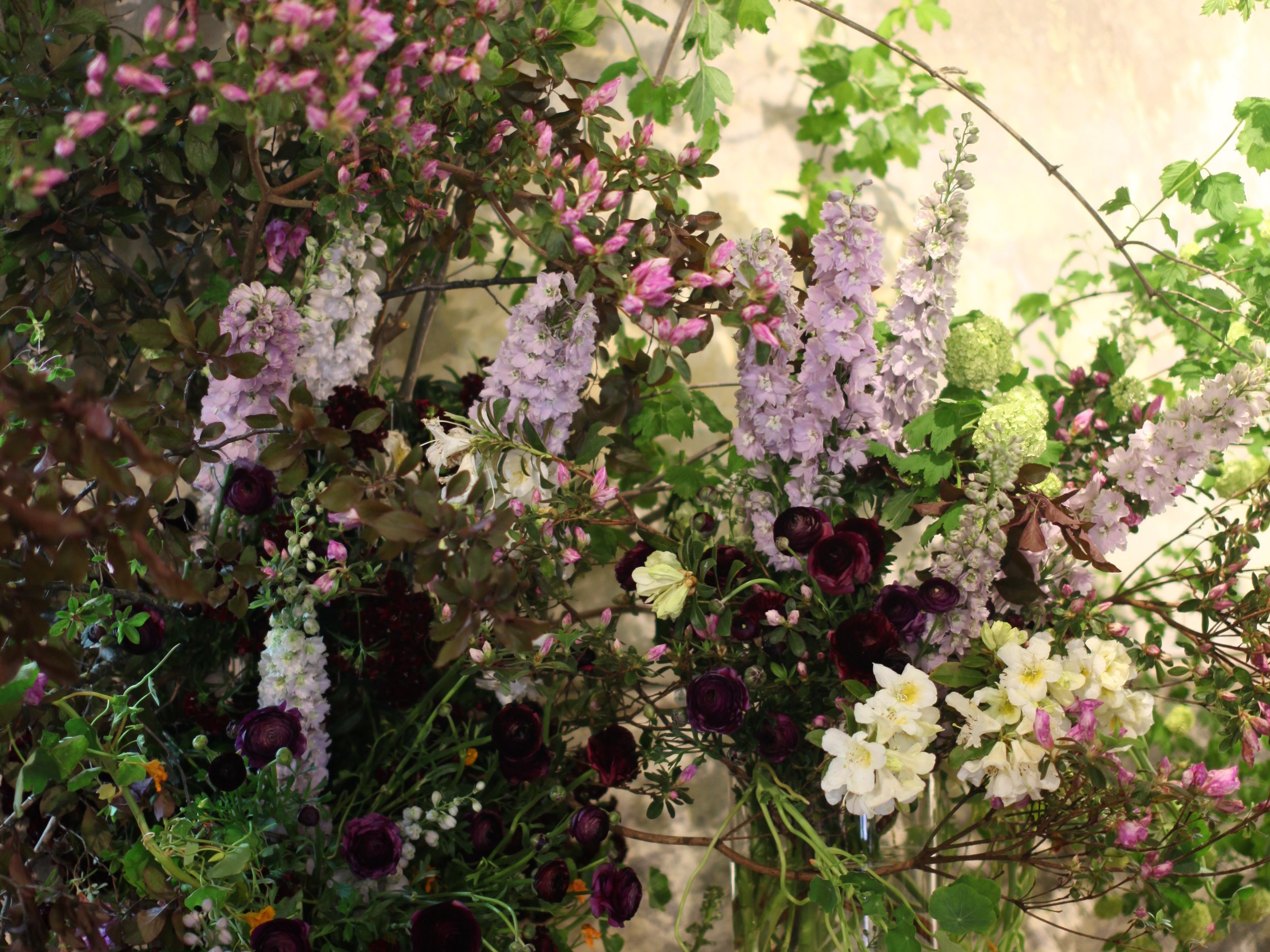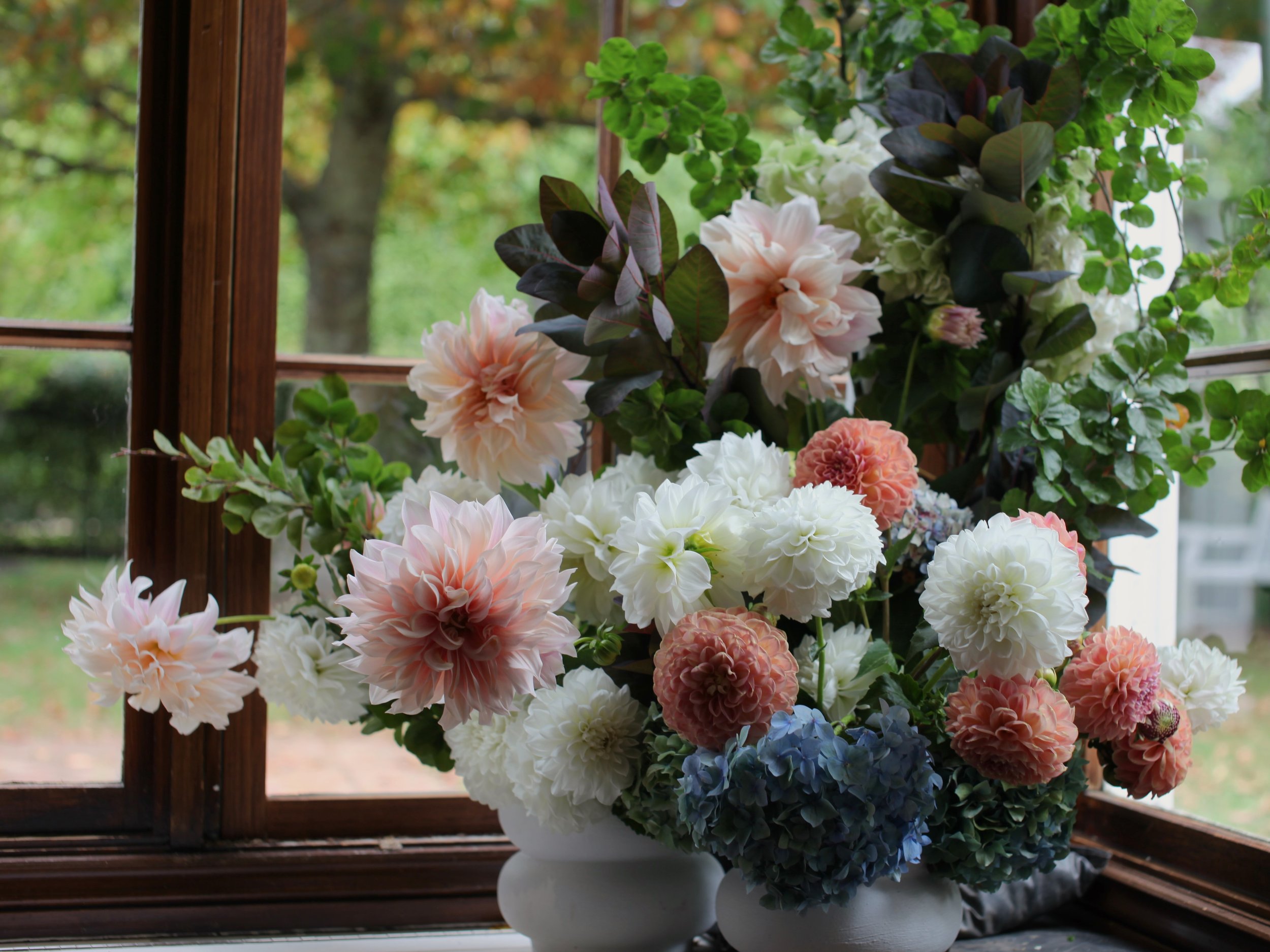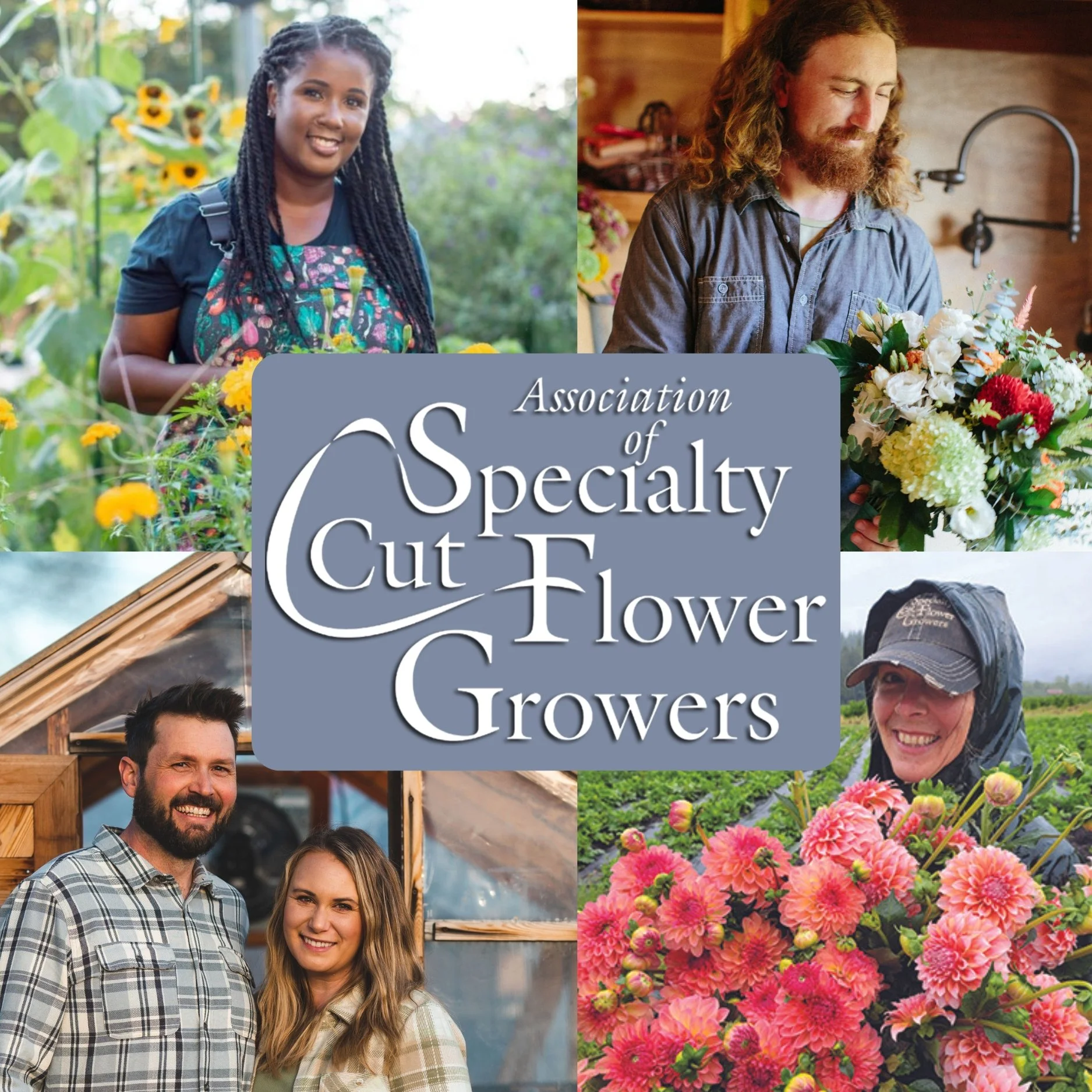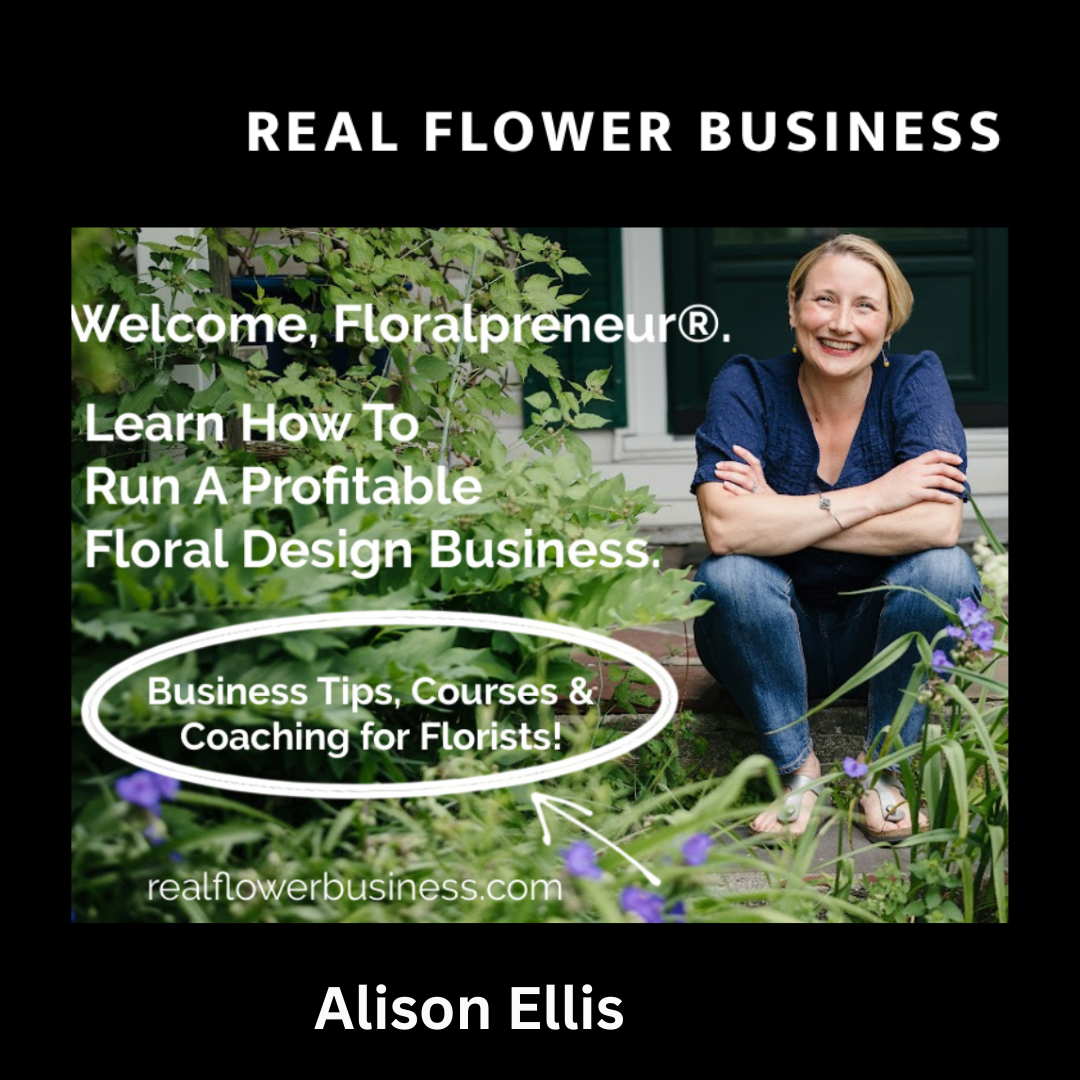Rita Feldmann
Sustainable Floristry Network
Rita Feldmann has been in flowers all her life. Her parents started the first road-stand in Melbourne, Australia in 1973 and her earliest memories were of her family selling flowers from the back of a horse and cart.
The family had a few small crops at their Dandenong Ranges home, and the smell of pinched-out chrysanthemum tips is a favourite childhood memory.
Rita started in floristry early, tagging along to help her mother, as she serviced the flowers for multiple five-star hotel accounts. In the 1980s, hotel flower budgets were big, and Rita’s first regular after-school job at the age of 13 was helping with a weekly order of 130 wired buttonholes for one hotel’s guests.
After school, Rita completed a science degree, majoring in botany, and continued with the hotel work. In the following decade, she completed postgraduate studies in science journalism and juggled work as a freelance writer for different medical industry associations and government agencies, with being the back-up in the family’s busy Prahran shop.
In 2006, with a return to the hills outside Melbourne, Rita started a wedding and events business, with a focus on the neighbouring winery region. The timing with the wedding boom/internet explosion was perfect. For 12 years, she had all the work she wanted, thanks to excellent relationships with busy, up-market venues in the area.
In 2017, the science journalist reemerged when Rita started looking into the issues of floral foam, and sustainability, as it applies to florists. Rita started the #nofloralfoam campaign on Instagram, and through this account, promoted foam-free floristry techniques and raised awareness of foam’s polluting nature.
In 2019, Rita started the, Sustainable Floristry Network, with the goal of creating a new education organisation and website to help florists with information about sustainability. Then in 2020, with COVID lockdowns in full force, she disappeared into research, making connections with others in industry and academia who were also pursuing an interest in the area. It was during this time that a connection with the Sustainable Cut Flowers Project, UK, was made, leading to a collaboration to develop the SFN’s first course.
In 2023, with the support of co-author Ginger Briggs, the SFN launched its first training program for florists, Foundation in Sustainability. This course brings together a lifetime of floristry experience with the science of sustainability.
Show Notes
The more I learn about what’s called the circular economy, the more I see the environmental impact that it can nurture.
It’s important for us to look at the resources we use and how we can preserve them the best.
Understanding terminology is important in how companies are making changes for good or are they just green washing their marketing.
Becoming sustainable is about more than just stopping the use of floral foams.
It’s not possible for anyone to be completely sustainable at this point. We need to start where we are, whether that’s eliminating waste, reusing items rather than discarding them, and understanding the importance in regenerating nature as we go forward.
